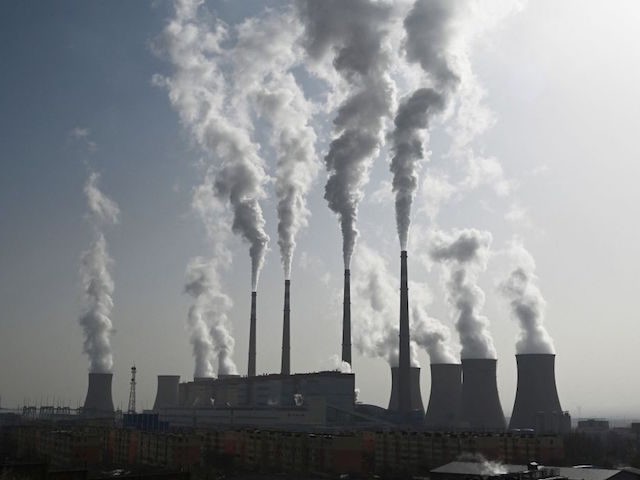“It is unrealistic to completely phase out fossil fuel energy,” China’s climate envoy Xie Zhenhua said at a press conference Thursday.
China is by far the world’s worst polluter and largest consumer of fossil fuels, conspicuously including prodigious amounts of coal burned in its steadily growing number of coal-fired power plants.
Xie’s comments appeared to be a definitive dashing of hopes that China might get more serious about reducing its carbon emissions at the upcoming COP28 U.N., climate conference in Dubai this November.
Reuters reported Xie saying China is “open to setting a global renewable energy target as long as it took the divergent economic conditions of different countries into account” – which means, of course, that China and its client states will not be expected to make the kind of sacrifices demanded of Americans and Europeans.
The China-led BRICS economic bloc made this explicit at its summit in Johannesburg, South Africa, in August. The BRICS group views climate change as the responsibility of the wealthy industrialized nations of the West, and has no intention of compromising their own industrial goals in favor of expensive and unreliable “green energy.”
Xie “welcomed pledges made to him by his U.S. counterpart John Kerry that a $100 billion annual fund to help developing countries adapt to climate change would soon be made available,” indicating that Chinese Communist still love to talk about climate change, especially when America is making gigantic commitments to pay for it.
On the other hand, Xie was irate at what he described as “protectionist” U.S. trade sanctions on Chinese solar panels, lecturing the U.S. about “politicizing” green energy and warning of price increases as high as 25 percent on solar panels from the trade sanctions.
U.S. imports of Chinese solar panels picked up in March after a slowdown caused by the Uyghur Forced Labor Protection Act (UFLPA), which requires companies to prove their Chinese supply chains are not tainted with slave labor from the Uyghur Muslims.
White House adviser John Podesta said in May that “clearer guidance” was issued to clear up the backlog of imported Chinese solar equipment. Before this “clearer guidance” was issued, U.S. Customs and Border Protection seized over a thousand shipments of solar energy equipment that could not prove it was free of forced labor contamination per UFLPA standards.
In August, the U.S. Commerce Department completed a year-long investigation of five Chinese solar panel companies and found they were skirting American tariff laws by routing their shipments through Cambodia, Malaysia, Thailand, and Vietnam.
The tariffs in question were waived until 2024 by President Joe Biden because American solar companies complained the shortage of Chinese supplies was making it impossible for them to meet demand. U.S. companies are ostensibly trying to develop more domestic solar panel production capability, but for the time being, China’s dominance of the industry is near-absolute.

COMMENTS
Please let us know if you're having issues with commenting.